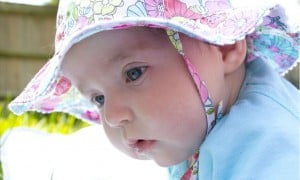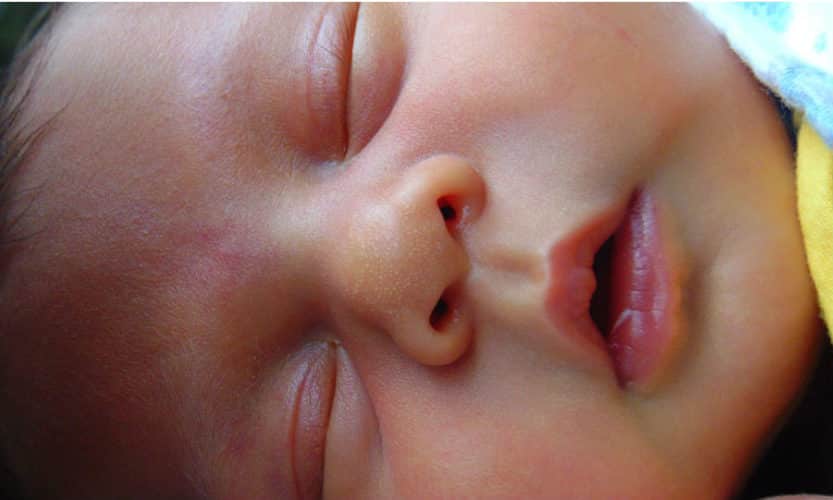To learn more about eczema, go to Conditions Associated with Eczema.
How can you prevent eczema? You can reduce the frequency and intensity of outbreaks by taking several preventative measures.
Whether or not your baby’s skin is fragile, you should always treat skin that seems very dry. This can help prevent many eczema outbreaks.
Breastfeed your baby as long as possible. This can prevent eczema if there is family history.
- Check to see if your baby is intolerant to their formula, leading to eczema symptoms and other clinical signs. If necessary, change the formula under advisement from a professional.
 Give your baby a ten minute (maximum) warm bath daily. Excessive bathing can, over time, lead to a weakening of the skin’s immune system, as it restricts exposure to environmental agents that the body needs to learn to fight off on its own.
Give your baby a ten minute (maximum) warm bath daily. Excessive bathing can, over time, lead to a weakening of the skin’s immune system, as it restricts exposure to environmental agents that the body needs to learn to fight off on its own.- Daily baths also remove skin bacteria that can cause superinfection when the skin breaks down.
- Use a fragrance-free soap or cleansing oil to hydrate their skin. These products won’t dry out the skin (Derma Smooth hydrating oil, glycerine soap, Uriage cleansing oil, Cutibase cleansing oil, Exomega cleansing oil).
- The soap you use to wash the baby’s clothes should be mild and fragrance-free (Ivory Snow, Zero Woolite or Tide Zero) and don’t use fabric softeners.
- Softly dry the baby after the bath, patting them down rather than rubbing them.
- Apply a thick hydrating cream on all over your baby’s body. The cream needs to be fragrance-free, and you should apply it several times a day for babies with very dry skin. For example, use Aquaphor, Glaxal-Base, Uriage Bariéderme, Cutibase, Cerave, Aveeno Sensitive, Lipikart AP+, Exomega, Arbonne for Babies, Mustela Stelatopia cream and Dermakalm.
- Loose clothing is better for your baby, and make sure they are cotton or other soft materials. Avoid wool and synthetic materials. Use cotton sheets;
 Cover your baby to avoid exposure to cold in the winter, make sure they aren’t too damp, hot and sweaty during summer.
Cover your baby to avoid exposure to cold in the winter, make sure they aren’t too damp, hot and sweaty during summer. - You should not use humidifiers, as they can be an important source of microbes found in stagnant water (devices are rarely or poorly cleaned).
- Your baby will itch, so best to cut their nails to avoid scratches, or have them wear mittens at night or during the day if required.
- To soothe itching, you can spray the sores with mineral water. If the eczema is widespread, you may need to use an anti-itch cream, such as Atarax (prescription). Try to soothe the itching, because if the baby scratches, it will breakdown the skin again. It’s a vicious circle.
- Learn to recognise and avoid things that seem to trigger outbreaks.
Continue reading with Treating Eczema.


